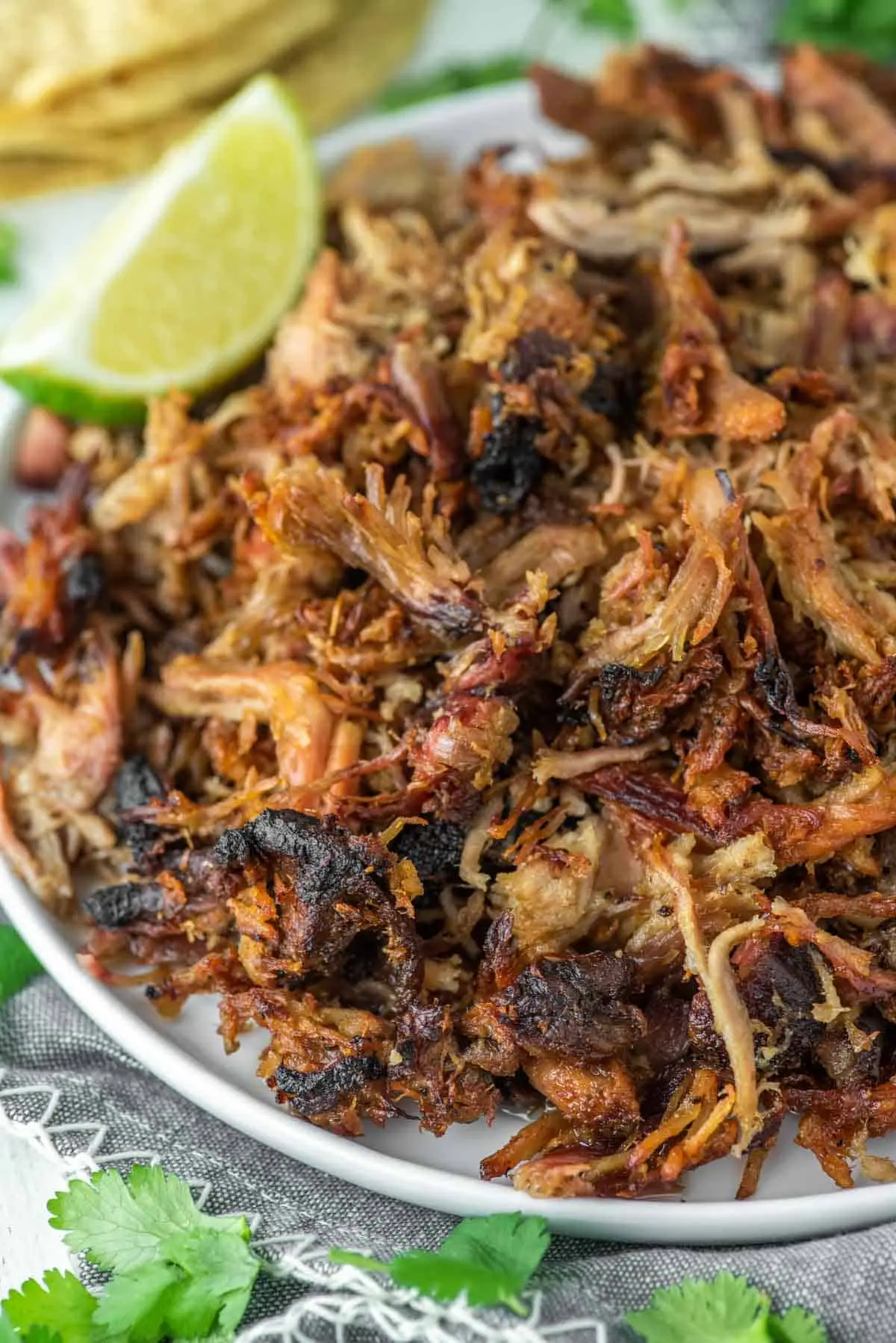When it comes to Mexican cuisine, one dish that stands out is pork carnitas. This traditional dish is known for its rich flavors and tender meat. However, many people wonder if pork carnitas are a healthy choice. In this article, we will explore the nutritional benefits of smoked pork carnitas and why it can be a great addition to your diet.

What are Pork Carnitas?
Pork carnitas are a classic Mexican dish made from slow-cooked pork that is typically seasoned with various spices and herbs. The meat is traditionally cooked in lard until it becomes tender and crispy. This cooking method gives the pork carnitas their signature texture and flavor.
While traditional pork carnitas are delicious, they can be high in unhealthy fats due to the use of lard. However, by making a few modifications, such as smoking the pork instead of cooking it in lard, you can enjoy a healthier version of this mouthwatering dish.
The Health Benefits of Smoked Pork Carnitas
Smoking the pork for carnitas can offer several health benefits:
- Reduced Fat: By smoking the pork instead of cooking it in lard, you can significantly reduce the amount of unhealthy fats in the dish. Smoking the pork allows the fat to drip away, resulting in a leaner and healthier meat.
- Retained Nutrients: Smoking meat preserves more nutrients compared to other cooking methods. This means that smoked pork carnitas can retain more vitamins and minerals, making it a nutritious choice.
- Enhanced Flavor: Smoking the pork adds a unique smoky flavor to the carnitas, making them even more delicious. The natural flavors of the meat are enhanced, creating a mouthwatering experience.
How to Make Smoked Pork Carnitas
Here is a simple recipe to make smoked pork carnitas:
- Ingredients:
- 2 pounds of pork shoulder
- 1 tablespoon of smoked paprika
- 1 tablespoon of garlic powder
- 1 tablespoon of cumin
- Salt and pepper to taste
- Instructions:
- Preheat your smoker to 225°F.
- Season the pork shoulder with smoked paprika, garlic powder, cumin, salt, and pepper.
- Place the seasoned pork shoulder in the smoker and cook for 5-6 hours, or until the internal temperature reaches 165°F.
- Remove the pork from the smoker and let it rest for 20 minutes.
- Shred the smoked pork using two forks.
- Heat a skillet over medium-high heat and add the shredded pork. Cook until it becomes crispy and caramelized.
- Serve the smoked pork carnitas in tacos, burritos, or any other desired dish.
Frequently Asked Questions
Are smoked pork carnitas healthier than traditional pork carnitas?
Yes, smoked pork carnitas are generally healthier than traditional pork carnitas. Smoking the pork reduces the amount of unhealthy fats, making it a leaner option.

Can I use a different cut of pork for smoked carnitas?
While pork shoulder is the most commonly used cut for carnitas, you can use other cuts such as pork butt or pork loin. Just make sure to adjust the cooking time accordingly as different cuts may require different cooking times.
What are some serving suggestions for smoked pork carnitas?
Smoked pork carnitas can be served in various ways, such as tacos, burritos, quesadillas, or even as a topping for salads. Get creative and enjoy this delicious dish in your favorite style!
In Conclusion
Smoked pork carnitas offer a healthier alternative to traditional pork carnitas. By smoking the pork, you can reduce the amount of unhealthy fats while still enjoying the mouthwatering flavors. Give this recipe a try and enjoy a delicious and nutritious dish that will satisfy your cravings.
If you want to know other articles similar to Healthy smoked pork carnitas: delicious and nutritious you can visit the Recipes category.


Related Articles